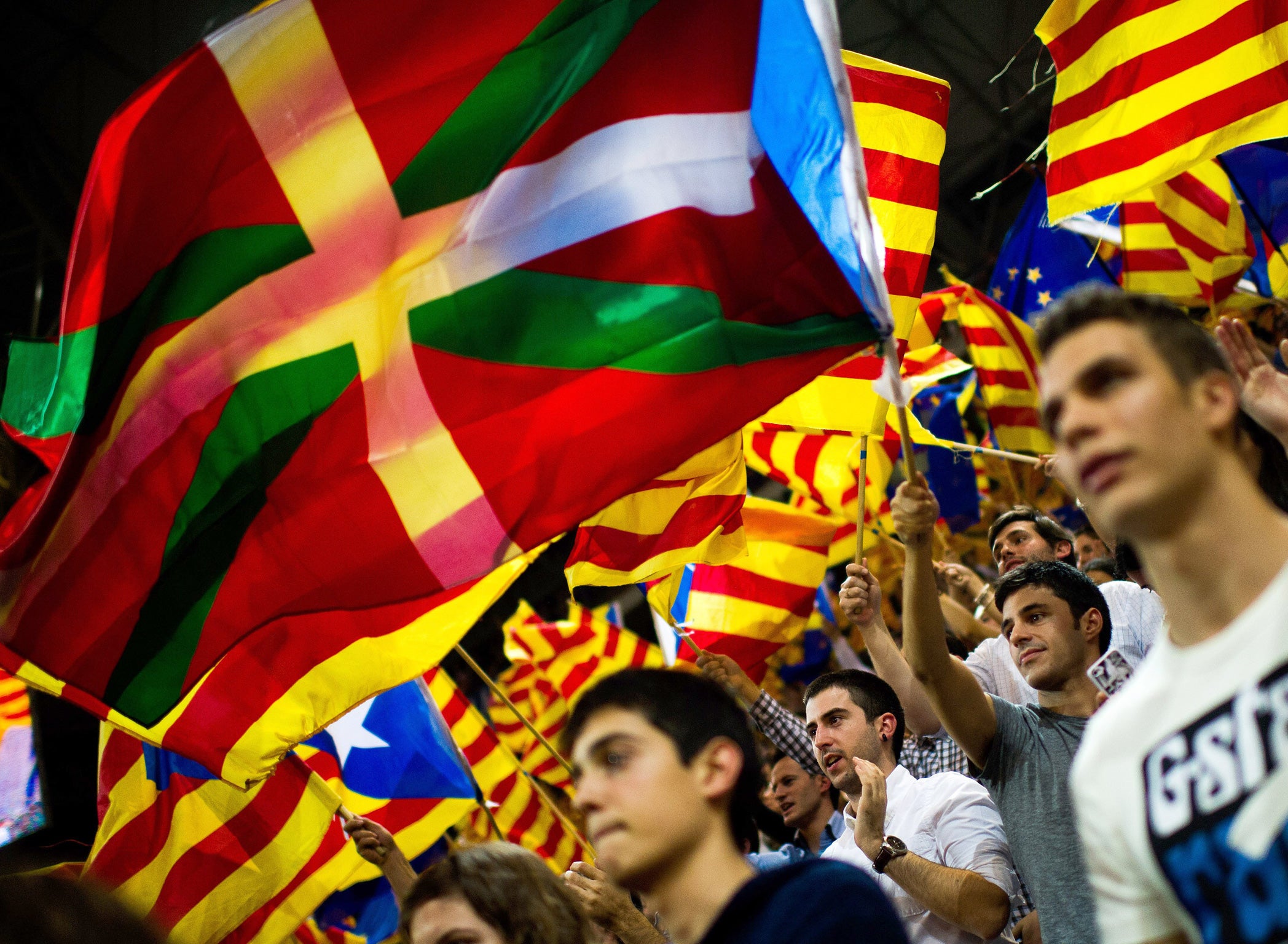Catalans vote on whether to remain in Spain
Economic woes are fuelling separatist feeling in the region

Catalonia's 300-year-old internal debate on whether it wants to remain part of Spain or gain full independence enters a crucial phase today in regional elections that could see the region's 7.5 million people take their first definitive steps towards forming a new European state.
Polls this year have indicated pro-separatist feeling in Catalonia is running at its highest ever since Spain returned to democracy in the mid-1970s, with anything up to 57 per cent of Catalans saying that they want their own country – a figure that has nearly doubled since Spain's current economic turmoil began in 2008. And Catalonia's regional government, run by the conservative nationalist Convergence and Union (CiU) party, has centred almost its entire election campaign on the promise of a referendum on independence within the next four years.
Although polling is not permitted in the week leading up to elections in Spain, pro-independence parties are expected to take the majority of the Catalan parliament's 135 seats by a comfortable margin, with the CiU retaining its position as the biggest party. The largest left-leaning nationalist party, the Republican Left (ERC), is predicted to make the biggest gains of any grouping, doubling its seats to around 18.
"There is a sense of anticipation in the air, similar to that which preceded the 11 September demonstration," Catalan journalist Lluis Simon said on Friday, referring to Catalonia's biggest pro-independence show of strength of recent times, when more than a million people took to the streets of Barcelona this autumn. "Everybody knows how important these elections are. Postal votes are up by 40 per cent already."
Should the nationalists retain or increase their majority, CiU's president Artur Mas has promised he will hold all-party talks, with the referendum process getting under way by early January 2013.
However, Catalonia's possible path towards independence is set to be anything but obstacle-free. The Spanish Prime Minister Mariano Rajoy's ruling Partido Popular (PP) has taken a tough line on defending the status quo for Catalonia – and is expected to increase its number of seats in the parliament. The PP has repeatedly stated that a referendum held in just one of Spain's 17 regions is not permitted under the country's constitution. Mr Rajoy himself has warned Catalan voters of the perils of "buying a one-way ticket to an unknown destination".
There have even been rumblings of discontent among Spain's military, with one association of retired and active officers saying that war should be declared on an independent Catalonia. And the ex-Civil Guard colonel, Antonio Tejero, who co-led a failed coup d'état attempt in 1981, has filed a court case against Mr Mas this week for "his continuous attempts to get an important part of Spain to secede".
The Catalan electorate, famous in the rest of Spain for their hard-headed business acumen, appears to be concerned primarily with economic rather than political or military matters: whether Catalonia, responsible for around a fifth of Spain's economic output, would have to rejoin the European Union. Although separatists argue that the EU would have to respect a large vote in favour of self-determination, polls show Catalans have considerably less support for nationhood if it means being outside the EU.
The voters' jitters about leaving the EU are understandable: despite being one of Spain's richest regions, Catalonia is in dire economic straits. Having overspent for the last decade, it is unable to borrow on the markets because its debt has been downgraded to junk status, and Mr Mas has already had to ask Madrid for a €5.4bn bailout.
Madrid's right-leaning media play on these fears: "[Catalonia] would lack the euro's stability, have a devalued currency, generating inflation, loss of capital and a rise in the cost of its imports", claimed the conservative ABC newspaper yesterday. "Catalonia would be a non-aligned country, suffering from isolation." A boycott of Catalan products in Spain, which receives around 45 per cent of its exports, seems certain, as well as Spain probably blocking any attempt to join the EU.
However, although most of the 40 or so major multinational companies in the region remain silent on their future in an independent Catalonia, a survey this summer of tens of thousands of smaller and medium-sized companies in the region came out with a majority in favour of splitting from Spain. And nobody denies that widespread general resentment in Catalonia over what they regard as an excessive contribution to Madrid's tax coffers – to the tune of €16bn, Mr Mas's government has claimed – and alleged neglect of Catalonia's transport system in a time of recession has helped to fuel nationalist sentiment.
"While we had a euro in our purses, we were willing to be robbed [by Spain]," one pro-Catalan independence activist, Joan Vericat, said last week. "But now we haven't got anything at all – we've had enough."
Subscribe to Independent Premium to bookmark this article
Want to bookmark your favourite articles and stories to read or reference later? Start your Independent Premium subscription today.

Join our commenting forum
Join thought-provoking conversations, follow other Independent readers and see their replies